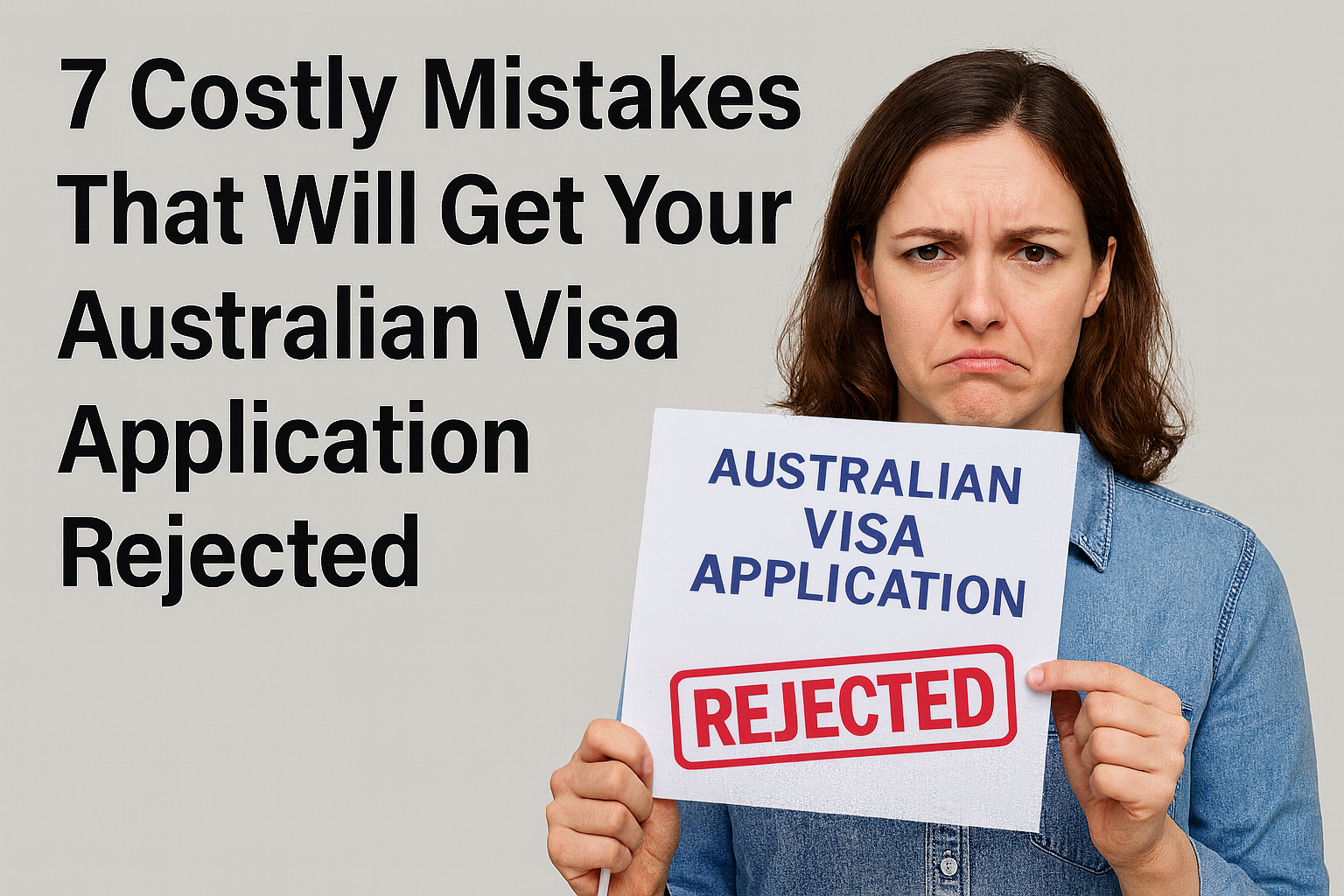Every year, the Australian government provides financial support to individuals to help ease financial stress, improve skills, and create opportunities. These grants are designed to support education, housing, small businesses, healthcare, and personal development. Unlike loans, grants do not need to be repaid, making them one of the most valuable forms of assistance available.
In 2025, the government is continuing its commitment by offering funding packages worth up to $50,000. This is part of a wider effort to support Australians facing cost-of-living pressures and to encourage personal growth in areas such as education, training, and business start-ups. If you are wondering how to access Australian government grants for individuals, this guide will explain eligibility, types of grants, and how to apply successfully.
Why Government Grants Matter in 2025
For many Australians, government funding is the only way to pursue opportunities that may otherwise be out of reach. Whether you want to start a business, study at university, or upgrade your skills, grants can provide the resources you need.
Here are some reasons why these programs are important:
- Financial relief: Programs reduce the financial burden for individuals facing hardship.
- Support for innovation: Grants encourage Australians to launch new ideas and businesses.
- Equal access: Funding ensures women, minorities, and disadvantaged groups have equal opportunities.
- Community impact: Personal grants improve not only individual lives but also local communities.
Types of Australian Government Grants for Individuals
The Australian government provides a wide range of financial assistance programs. In 2025, several schemes stand out because of their generous funding and accessibility.
1. Education and Training Grants
Education remains a top priority. Grants are available to support tuition, vocational training, and upskilling.
Example: Skills and Training Incentive Program – designed to help individuals over 45 upgrade their qualifications.
Funding Amount: Up to $5,000 co-funded with employers.
Purpose: To keep individuals competitive in the job market.
2. Small Business and Startup Grants
For individuals planning to launch a business, the government offers seed funding to turn ideas into reality.
- Example: New Business Assistance with NEIS (New Enterprise Incentive Scheme).
- Funding Amount: Financial support combined with mentoring services.
- Purpose: To reduce unemployment and boost entrepreneurship.
3. Housing and Personal Support Grants
Australians facing housing issues or financial stress may qualify for assistance.
- Example: First Home Owner Grant (FHOG).
- Funding Amount: Varies by state, often around $10,000–$20,000.
- Purpose: To support individuals buying or building their first home.
4. Health and Wellbeing Grants
Programs exist to support people with disabilities, mental health challenges, or other personal needs.
- Example: National Disability Insurance Scheme (NDIS).
- Funding Amount: Tailored to individual needs, sometimes exceeding $50,000 per year.
- Purpose: To improve independence and quality of life.
How Much Can You Receive?
In 2025, the top Australian government programs are offering up to $50,000 in personal grants. These include support for business startups, education, housing, and healthcare needs. While not every applicant will receive the maximum amount, many individuals can qualify for smaller grants tailored to their situation.
Eligibility for Australian Government Grants
Each program has its own eligibility rules, but some general conditions include:
- Must be an Australian citizen or permanent resident.
- Age restrictions may apply (e.g., 18+ or 45+ for certain training incentives).
- Must meet income or financial need requirements for some grants.
- Some programs prioritize women, indigenous Australians, or individuals with disabilities.
- Applicants must submit supporting documents such as proof of income, residency, or business plans.
Where to Apply for Grants in Australia
It is important to rely only on official websites to avoid scams. The following sites are trusted sources for 2025 funding opportunities:
www.business.gov.au
www.servicesaustralia.gov.au
www.ndis.gov.au
http://www.firsthome.gov.au
Major $50,000 Government Grants in Australia for 2025
The Australian government has several programs that allow individuals to apply for grants worth up to $50,000. While some are targeted toward businesses, many directly support individuals in areas like training, personal support, or first-time housing.
1. National Disability Insurance Scheme (NDIS)
The NDIS is one of the most important government assistance programs Australia offers, providing tailored funding for individuals living with disabilities.
- Purpose: To improve independence, health, and overall quality of life.
- Funding Amount: Support packages can exceed $50,000 annually depending on individual needs.
- Eligibility: Must be an Australian citizen or permanent resident aged under 65 and meet disability criteria.
- Deadline: Open year-round with rolling assessments.
Apply via:www.ndis.gov.au
2. First Home Owner Grant (FHOG)
Buying or building your first home is easier with the First Home Owner Grant.
- Purpose: Helps individuals and families enter the housing market.
- Funding Amount: Varies by state but can reach $10,000–$20,000, which may be combined with other incentives to exceed $50,000 in total support.
- Eligibility: Must be a first-time homebuyer, citizen or permanent resident, and meet property value thresholds.
- Deadline: Applications must be submitted before or at settlement/building completion.
- Apply via:www.firsthome.gov.au
3. Skills and Training Incentives
This program provides financial support grants Australia 2025 for older Australians who want to retrain or upskill.
- Purpose: To help workers over 45 remain employable in a changing economy.
- Funding Amount: Grants of up to $5,000, matched by employers, bringing combined support up to $10,000+.
- Eligibility: Individuals over 45 currently employed or looking for work.
- Deadline: Applications open until program funding is exhausted.
- Apply via: www.servicesaustralia.gov.au
4. Small Business and Startup Funding for Individuals
Although technically categorized under business programs, individuals who want to start a small business can apply for personal grants in Australia for individuals through government-funded entrepreneurship schemes.
- Program: New Business Assistance with NEIS.
- Funding Amount: Covers training, income support for up to 39 weeks, and mentoring. Combined value can approach $20,000–$50,000 depending on needs.
- Eligibility: Must be over 18, not already running a business, and meet residency requirements.
- Deadline: Rolling applications throughout the year.
- Apply via: www.business.gov.au
Application Deadlines for 2025
While some programs accept rolling applications, others have strict deadlines. Missing these dates means waiting until the following year.
- NDIS: Open year-round.
- First Home Owner Grant (FHOG): Deadlines vary by state; generally must apply at or before property settlement.
- Skills and Training Incentive: Applications accepted until funds run out, usually mid-year.
- NEIS (Business Assistance): Rolling, but early application increases chances due to limited slots.
Step-by-Step Guide: How to Apply for Grants in Australia
Step 1: Research the Right Program
Start by visiting official portals. Each program has different eligibility requirements. Make a shortlist of grants you qualify for.
Step 2: Prepare Required Documents
Common documents include:
- Proof of identity (passport, driver’s license, or birth certificate).
- Residency status (citizenship or permanent residency).
- Proof of income or financial need (tax returns, pay slips, or Centrelink statements).
- Business plan (if applying for entrepreneurial funding).
- Medical or support documentation (for disability grants).
Step 3: Register Online
Most grants require creating an account on a government portal like Services Australia or Business.gov.au. Fill out the application carefully, making sure all fields are complete.
Step 4: Write a Strong Statement of Purpose
Explain clearly why you need the funding. For example:
- How will the grant improve your financial stability?
- How will it help you build skills, buy a home, or start a business?
- How will it impact your community or family?
Step 5: Submit Before the Deadline
Never wait until the last minute. Technical issues or missing documents can cause delays. Early applications also show seriousness.
Step 6: Follow Up and Respond to Requests
Some programs may contact you for more documents, interviews, or verification. Respond quickly to avoid delays.
Step 7: Wait for Approval
Approval times vary. For smaller grants, results may come in weeks. For larger programs like NDIS or FHOG, the process may take months.
Tips to Increase Your Chances of Approval
- Be specific: In your application, outline exactly how the funds will be used.
- Stay organized: Keep all your documents in one folder for easy access.
- Tailor each application: Avoid generic responses; focus on how the grant meets your unique needs.
- Seek professional advice: Some applicants hire grant writers or financial advisors to strengthen their case.
- Apply early: The earlier you apply, the better your chances before funding runs out.
Real-Life Success Stories of Grant Recipients
1. John’s Path to Business Ownership
John, a 29-year-old from Sydney, had always wanted to start his own coffee business. He applied through the New Business Assistance with NEIS program. The grant covered his training, provided mentoring, and supported his income for the first year. With that help, John opened a coffee cart in a busy suburb. Within 18 months, his business expanded into a full café. He credits the grant as the stepping stone that gave him confidence to take the risk.
2. Sarah’s Education and Career Boost
Sarah, a 47-year-old single mother from Melbourne, was worried about losing her job in manufacturing due to automation. Through the Skills and Training Incentive, she received $5,000 in government funding, matched by her employer, to retrain in digital marketing. Today, Sarah works remotely for a national company, earning a higher income than before. This shows how government funding in Australia 2025 helps individuals adapt to changing industries.
3. Michael’s Disability Support Journey
Michael, living with cerebral palsy, applied to the NDIS in 2024. His package covered new mobility equipment, home modifications, and therapy sessions. In one year, his independence improved dramatically. With over $50,000 worth of support, he was able to secure part-time employment and participate in community activities. His story shows how personal grants in Australia for individuals are more than money — they provide dignity and opportunities for inclusion.
Common Mistakes to Avoid When Applying for Grants
Applying for Australian government grants for individuals is not always easy. Many applicants are rejected for simple mistakes. Here are errors you must avoid:
Incomplete Applications
Leaving out documents like proof of income, identification, or business plans is one of the most common reasons for rejection.
Missing Deadlines
Each program has strict deadlines. Submitting late usually means automatic disqualification.
Generic Applications
Copy-pasting the same answers for multiple grants can weaken your case. Tailor your application to match each program’s goals.
Lack of Evidence
Claims without supporting documents (such as medical reports or financial statements) lower your credibility.
Not Following Guidelines
If a grant asks for a word limit, specific form, or online submission, ignoring these rules will get your application dismissed.
Why Planning Early Matters
Planning in advance increases your chances of receiving funding. Here’s why:
- Extra time for documents: Some proofs like tax records or medical certificates may take weeks to collect.
- Better proposals: A rushed application often looks weak. Early preparation allows you to refine answers.
- Avoid technical delays: Online portals may crash close to deadlines. Applying early avoids last-minute panic.
- Flexibility: If rejected, you’ll have time to reapply for other opportunities within the same year.
Conclusion
Government funding is one of the most effective ways for Australians to improve their lives in 2025. Whether you are starting a business, buying your first home, retraining for a new career, or living with a disability, there are programs designed to help. The best part is that these funds do not need to be repaid, making them true financial lifelines.
If you are serious about securing $50,000 government grants Australia offers this year, start early, prepare carefully, and only apply through official websites:
Frequently Asked Questions (FAQs)
1. Can individuals really get $50,000 from the government in Australia?
Yes. Programs like NDIS can exceed $50,000 depending on personal needs, while other schemes like FHOG and NEIS can combine to provide significant support.
2. Who is eligible for government grants in Australia?
Eligibility depends on the program, but most require Australian citizenship or permanent residency. Some prioritize women, older workers, or people with disabilities.
3. Do I have to repay these grants?
No. Grants are not loans, but you must use them for the approved purpose. Misuse can lead to penalties.
4. Are grants taxable?
Some grants may be taxable depending on their nature. It’s best to consult a tax advisor to stay compliant.
5. How do I apply for grants in Australia?
Applications are submitted online via official portals like Services Australia or Business.gov.au.
6. What documents do I need to apply?
Proof of ID, residency, income records, and any additional documents requested by the specific program (e.g., medical reports, business plans).
7. How long does it take to receive grant money?
Small grants may be approved within weeks. Larger programs like NDIS can take several months to finalize.
8. Can I apply for more than one grant?
Yes. Many individuals apply for multiple grants if they meet eligibility requirements.
9. What if I am rejected?
You can reapply in the next cycle or look for alternative programs. Rejections often happen due to incomplete applications.



